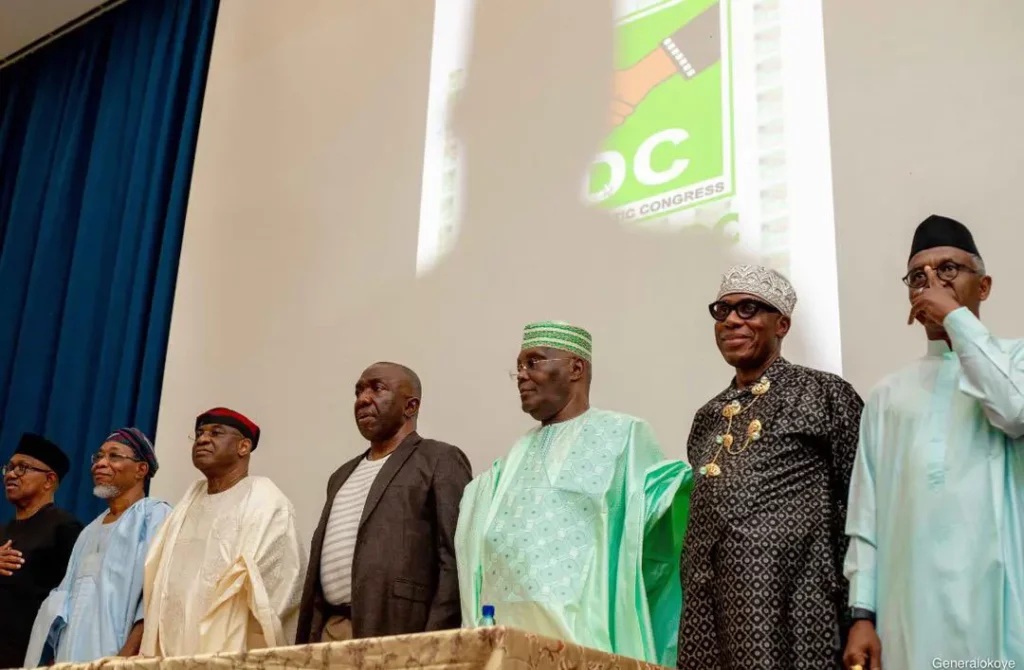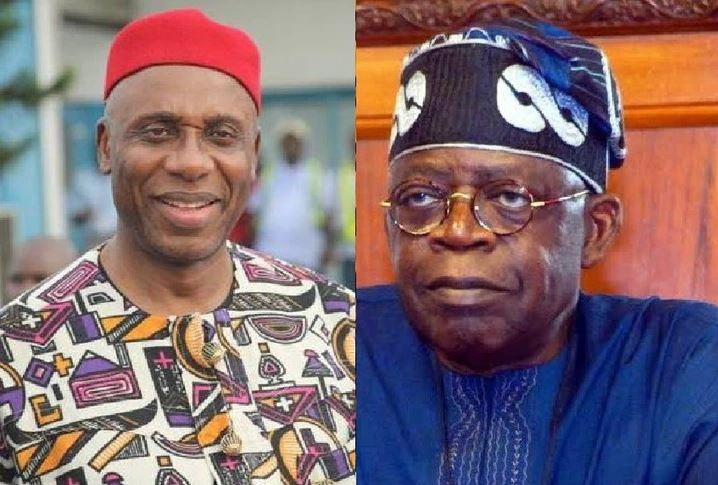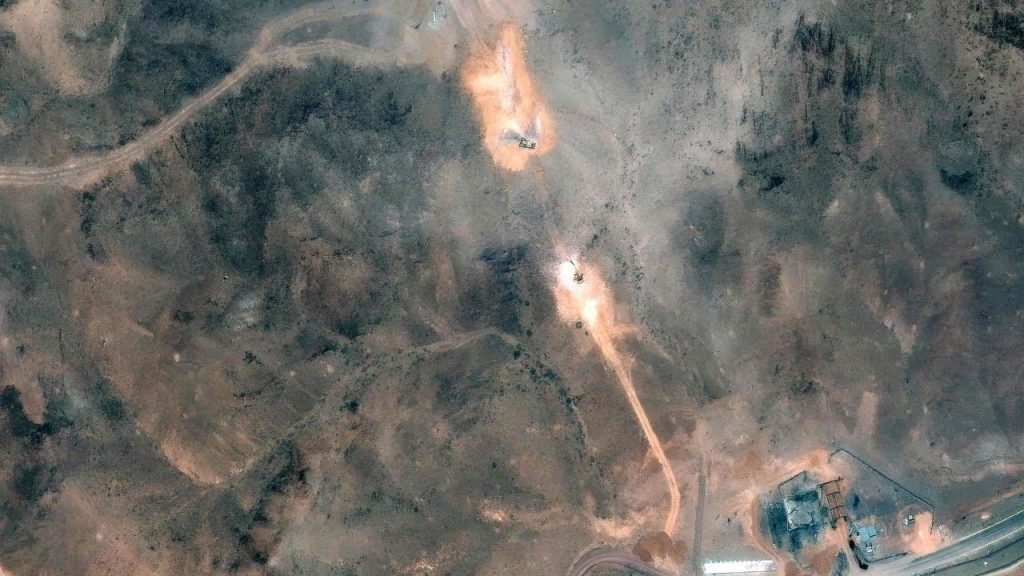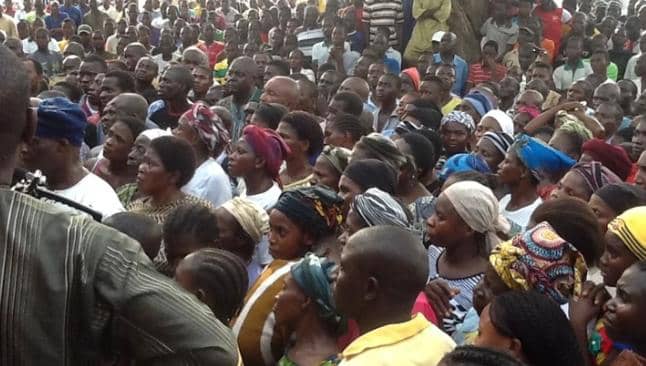Africa
Justice, Patronage, and Governance – A Nation’s Trust at Stake

The recent announcement by the Federal Capital Territory (FCT) Minister, Nyesom Wike, regarding the Federal Executive Council’s (FEC) approval for the construction of 40 luxurious houses for Nigerian judges in Abuja demands closer scrutiny.
With President Bola Tinubu at the helm, this decision, alongside the remarkable 300% salary hike for judges, prompts deep questions about governance, impartiality, and the integrity of Nigeria’s judicial system.
While housing and remuneration for judges may seem long overdue, the context and timing of these actions suggest something far more troubling than the simple upgrading of public service conditions.
The planned construction of these 40 houses, set in the upscale Kantampe district of Abuja, is an extraordinary gesture.
Wike announced that 20 houses will be allocated to FCT High Court judges, 10 to the Federal High Court, and 10 to the Court of Appeal.
He also stated that they will complete access roads to the judicial quarters by December.
While no cost estimates were provided, we can infer that the project will consume a significant amount of public funds at a time when the country grapples with rising poverty, insecurity, and economic instability.
They have set a 15-month timeline for completion, but we cannot ignore the heavy political undertones that accompany this project.
Benevolent or Political Gratitude?
While no one can argue against the need for improved working conditions and housing for judges, these moves appear laden with ulterior motives.
The timing of this decision, coming months after the controversial election results that led to Tinubu’s assumption of office, raises pertinent questions.
The judiciary, having played a key role in the legal battles that followed the general elections, finds itself in an uncomfortable spotlight.
These new benefits for judges, luxury houses in one of the most affluent areas of the capital, and a 300% salary increase seem eerily convenient.
The approval for these benefits looks less like a thoughtful and overdue reform and more like an act of gratitude toward a judiciary that helped secure Tinubu’s contentious victory.
The Supreme Court’s decision in favor of Tinubu sparked widespread debate, with many questioning the neutrality and fairness of the ruling.
Now, months later, Tinubu’s administration showers the judiciary with largesse, leaving Nigerians to wonder: Is this governance, or patronage? Is this how Tinubu rewards his allies?
Judicial salaries have been stagnant for years, and many would agree that an increase was long overdue. But the way and manner in which this increase has come about appears less about remedying an oversight and more about consolidating political alliances.
Supreme Court justices, once paid modest salaries compared to their counterparts in other countries, will now earn at least 5 million Naira per month, with the Chief Justice earning a staggering 64 million Naira annually.
For a judiciary that is meant to stand as a beacon of impartiality, these newfound rewards cast a long shadow of suspicion over their integrity.
A Nation’s Priorities Misaligned
At a time when Nigeria is facing some of its worst economic challenges, with inflation skyrocketing and basic commodities out of reach for many, these developments represent a deep misalignment of national priorities.
The country’s minimum wage is a meager 70,000 Naira, a sum that cannot sustain even the most modest of livelihoods in today’s Nigeria.
Meanwhile, public servants, particularly those tasked with upholding justice, are receiving windfalls that seem grossly disproportionate in the context of the country’s broader economic woes.
How can the government justify such generosity toward the judiciary when millions of Nigerians are struggling to make ends meet?
When teachers, healthcare workers, and other essential service providers are grossly underpaid and overworked, this level of favoritism toward judges speaks to a dangerous imbalance in the government’s priorities.
It also sends a demoralizing message to the average Nigerian: Your struggles do not matter as much as the comfort of those who hold the fate of politicians in their hands.
It is essential to note that the 40 houses and salary increases come against the backdrop of national discontent with the country’s political and judicial elite.
The judiciary’s role in upholding the rule of law has been tarnished by a series of controversial rulings that often seem to favor the powerful over the ordinary citizen.
It seems like Tinubu is using this new housing project and the extraordinary salary hikes to solidify the judiciary’s allegiance ahead of future political battles, including the 2027 elections.
Where is the Accountability?
In a functioning democracy, transparency and accountability are non-negotiable.
Yet, in this instance, the government has failed to provide basic details regarding the cost of the housing project.
How much public money will go into these luxury homes?
How will this expenditure affect other critical sectors like education, healthcare, and infrastructure that remain grossly underfunded?
These are questions that Nigerians deserve answers to, yet none are forthcoming.
The decision to prioritize the comfort of judges over the nation’s needs at large speaks to a deeper problem within the Nigerian political scene.
It seems governance has become less about serving the people and more about consolidating power through backroom deals and political favors.
The judiciary, which should serve as an independent and impartial institution, now appears entangled in this web of patronage and privilege.
The Erosion of Public Trust and Justice
The judiciary is one of the pillars of democracy, and its credibility is critical to the health of the nation.
If the public perceives judges as being too cozy with the executive arm of government, trust erodes.
If Nigerians begin to believe that the courts are merely an extension of the president’s office, democracy itself is at risk.
The appearance of political favoritism, especially in light of the judiciary’s role in the post-election legal battles, undermines the public’s faith in the system.
The judiciary should not only be impartial but also appear impartial.
Unfortunately, with the construction of luxury homes and the hefty salary increases, the perception of the judiciary as an independent arbiter of justice is seriously compromised.
How can justice be served when the judiciary is now a puppet of the executive arm of government?
A Nation at a Crossroads
Nigeria stands at a critical juncture.
As economic challenges mount and political divisions deepen, the decisions made by those in power will determine the country’s future trajectory.
Will Nigeria become a nation where the few continue to enrich themselves at the expense of the many, or will it be a nation where justice, equality, and fairness prevail?
The approval of luxury homes and astronomical salary increases for judges signals a worrying trend.
It shows a government more interested in maintaining the loyalty of key political actors than in addressing the urgent needs of its people.
It reflects a leadership out of touch with the reality of the ordinary Nigerian’s daily struggles.
As citizens, we must demand better.
We must hold our leaders accountable, question their motives, and ensure that they are working in the best interests of the nation, not just for their political survival.
The judiciary, too, must remember its sacred duty to uphold justice without fear or favor.
Only then can we begin to restore the public’s faith in our democracy.
A Call for Justice and Accountability
Nigeria’s leaders must realize that they cannot buy the trust of the people with houses and pay raises.
Diaspora Digital Media will continue to hold the government accountable when they make decisions that seem to be to the detriment of the Nigerian people.
True governance lies in serving the people, addressing their needs, and creating an environment where justice is not only done but is seen to be done.
Anything less is a betrayal of the nation’s trust, and history will not be kind to those who put personal gain and political maneuvering above the welfare of the Nigerian people.
For Diaspora Digital Media Updates click on Whatsapp, or Telegram. For eyewitness accounts/ reports/ articles, write to: citizenreports@diasporadigitalmedia.com. Follow us on X (Fomerly Twitter) or Facebook












